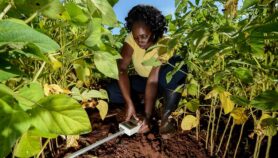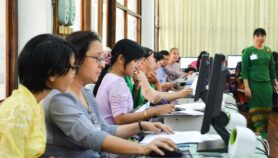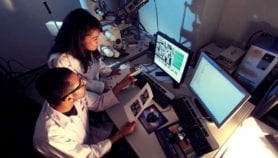By: Catherine Brahic
Send to a friend
The details you provide on this page will not be used to send unsolicited email, and will not be sold to a 3rd party. See privacy policy.
AIDS researchers from institutes in developing countries now have a new peer-reviewed outlet in which to publish their findings, with this week’s launch (7 July) of the e-Journal of the International AIDS Society (eJIAS).
eJIAS is the collaborative joint product of the International AIDS Society (IAS) and Medscape, an online provider of medical news. Its creators say the journal offers AIDS researchers in developing countries a much-needed international platform.
“Scientists from developing countries can face exceptional challenges in communicating their research findings,” says Mark Wainberg, director of the McGill AIDS centre and eJIAS editor-in-chief. “We will try to be proactive in helping scientists from developing countries whose papers are commonly rejected by mainstream journals, often for reasons of language and style rather than scientific content. This new journal will fill a significant need by promoting the dissemination of potentially life-saving research in a timely, realistic and effective manner.”
Contributions from industrialised nations will be accepted so long as they relate to HIV/AIDS prevention in the South.
In order to increase its visibility to the international research and policy communities, full eJIAS content will be freely accessible online from an open access website, which goes live on 11 July.
The first issue of the journal will feature abstracts presented at the XV International AIDS Conference being held in Bangkok from 11 July to 16 July. Its publishers expect it to be read by more than 600,000 physicians and some one million healthcare providers.
The launch of eJIAS has been helped by a grant from the Bristol-Myers Squibb Foundation’s Secure the Future programme.













